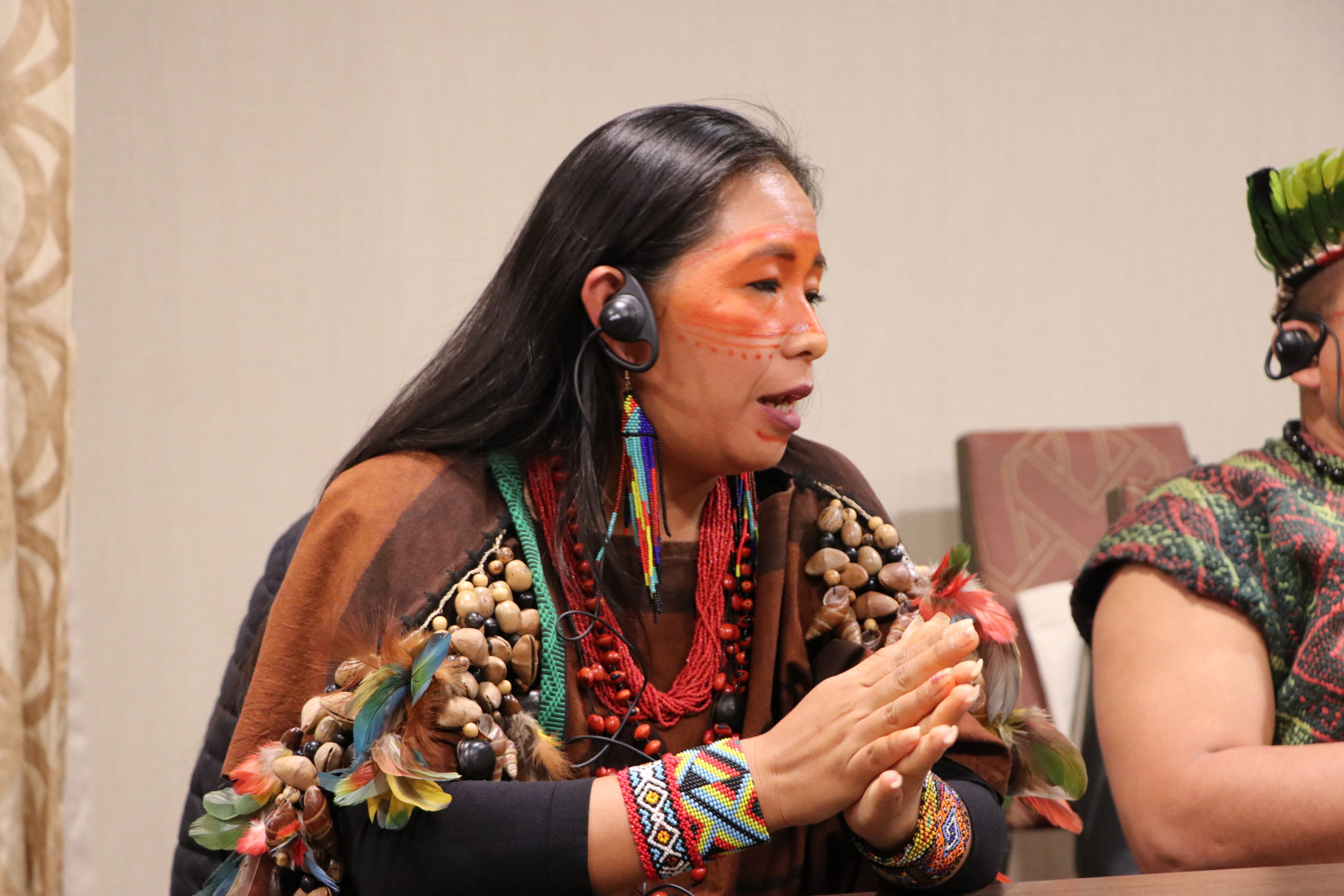Image: DAR
- The report prepared by ORAU with the support of DAR exposes the threats, violations, advances and challenges for the protection of indigenous peoples in Peru. The document was sent on January 30 to the Human Rights Committee.
From February 27 to March 24, the 137th session of the United Nations Human Rights Committee will take place in Geneva, a space where Peru will be one of the countries evaluated in relation to compliance with the International Covenant on Civil and Political Rights.
Within this framework, the Aidesep Ucayali Regional Organization (ORAU) with the support of Derecho, Ambiente y Recursos Naturales (DAR) prepared a technical report, presented as an input in the framework of the evaluation of the aforementioned Committee in relation to the situation of human rights in Peru, providing an alternative look to that of the State as organized civil society. This document pointed out the threats, violations, advances and challenges regarding the respect and guarantee of the collective rights of the indigenous peoples of the country..
“We want to make a call to international organizations, in relation to the threats that currently fall on indigenous peoples, and that condition our survival. The Amazon is at risk as a result of the multiple territorial pressures that we suffer and that are associated with illegal, extractive activities and large infrastructure projects. How long must we be like this for effective measures to be taken?” said Jamer López, vice president of ORAU.
Supporting what was indicated by the indigenous leader, the report indicates the increase in multiple threats that endanger the existence of indigenous peoples and the preservation of the Amazon, which are related to the advance of deforestation, illegal mining, drug trafficking and other illegal activities. As well as with the affectation of rights such as consultation and prior, free and informed consent, the right to collective territory within the framework of the right to indigenous self-determination. Similarly, the right to life is analyzed in relation to the cases of environmental defenders and the situation of indigenous peoples in isolation and initial contact.
Challenges of prior consultation in Peru
Regarding prior consultation and consent, international standards issued by human rights bodies to which Peru is a party are recalled, such as the obligation to respect the consent of indigenous peoples as a condition for full prior consultation. In the same way, there are challenges related to compliance with the consultation minutes, and the monitoring of the agreements, as well as the implementation of the A.P. Nº 29126-2018, which eliminates the prohibition of prior consultation when it is linked to public services such as roads or waterways, and which is pending implementation. In addition, the emerging debates on autonomous prior consultation protocols in Peru are highlighted.
Recognition of indigenous initiatives
In the case of the right to territory, indigenous proposals to recognize integral or ancestral territories are recalled, going beyond current titling policies. It is pointed out that, according to inter-American standards, the territorial right of indigenous peoples is not based on the titling process, but rather on its continued possession. In this way, the recognition of self-government and autonomy initiatives that have emerged recently, such as the Autonomous Indigenous Territorial Governments, whose center is the recomposition of the indigenous ancestral territory, is highlighted.
¿ How can the protection mechanism for environmental defenders improve?
Regarding the situation of indigenous and environmental defenders, it is mentioned that despite the efforts represented by the implementation of an intersectoral mechanism for their protection, under the responsibility of the Ministry of Justice and Human Rights, a larger budget, training of the authorities in charge of carrying out the patrols, as well as the articulation with authorities that administer justice in a specialized manner, understanding that the threats and attacks are related to the advance of drug trafficking, invasions and road projects.
Proposals that put the protection of the PIACI at risk
In addition, the importance of taking action for the protection of Indigenous Peoples in Isolation and Initial Contact (PIACI), constantly threatened by territorial pressures associated with illicit economies such as illegal logging and drug trafficking, is highlighted. The report adds that there is great concern about legislative initiatives such as bill No. 3518/2022-CR that proposes modifications to the PIACI regulations that will weaken the existing institutional framework, by proposing that regional governments be in charge of approving the creation and maintenance of the PIACI Reserves, which may mean opening up initiatives of forced contact that compromise the subsistence of the PIACI.
Finally, the ORAU and DAR report provides recommendations to the Peruvian State to expose the problems and propose solutions based on international human rights standards. This with the objective of achieving full respect and guarantee of the rights of indigenous peoples within the framework of their self-determination.
To read the report, here.


